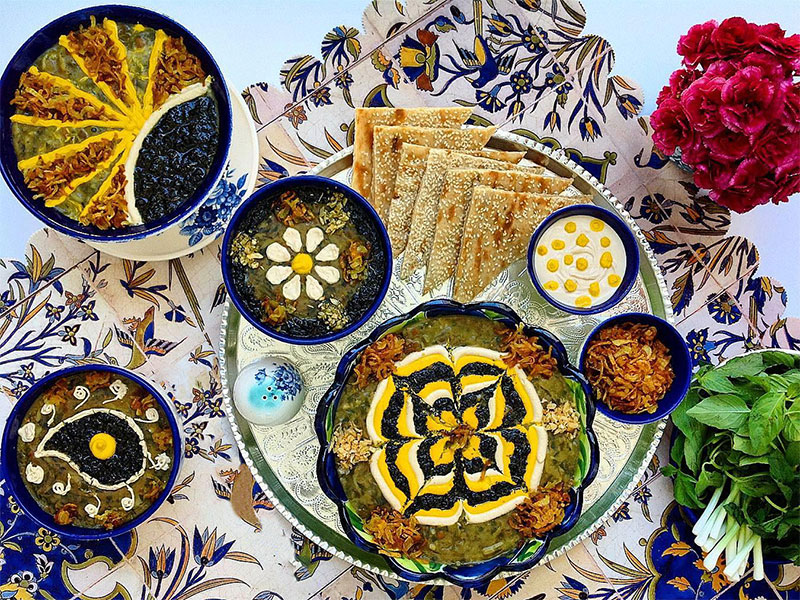Ramadan is highly observed by Iranians. It is considered as the month to strengthen family bonds and thank God for His
blessings. The meal consumed before dawn is known as ‘Sahari’, which varies from family to family. Some prefer hot meals while others eat bread, jam, cheese and eggs.
Iranians traditionally break their fast with dates and a cup of tea or hot water. Some families combine ‘Iftar’ and dinner into one meal, while others prefer a gap between the two. Tea, bread, cheese, fresh vegetables, ‘Zoolbia’ and ‘Bamieh’ (two traditional
Persian sweets coated in sugar syrup), Halva, Sholeh Zard (a sweet Iranian dessert made of rice, sugar, and saffron), Ash Reshteh, and Halim as well as various kinds of soups are commonly served at ‘Iftar’ time.
Sholeh Zard
Sholeh Zard is a sweet Iranian dessert made of saffron, sugar and rice.
Zoolbia & Bamieh
Zoolbia Bamieh is one of the favorite desserts in Iran. It is made of starch, yogurt, flour, saffron, oil, and rose water.
Ash Reshteh
Ash Reshteh is a type of ash (thick winter soup) made commonly in Iran. The ingredients used are reshteh (thin noodles), kashk (a whey-like dairy product), herbs such as parsley, spinach, dill, spring onion ends and sometimes coriander, chick peas, black eye beans, lentils, onions, flour, dried mint, garlic, oil, salt and pepper.

Halim
Halim is a popular meal in the Middle East, Central Asia and South Asia. Although the dish varies from region to region, it always includes wheat, barley, lentils and meat.
Fereni
Fereni is a Persian pudding dessert that people make for various occasions. For some events, Fereni is served cold as a dessert, while at other times it is served warm for someone who is sick.

Ranginak
Ranginak is a healthy, nutritious and wonderful tasty dessert from the southern region of Iran. Ranginak is best when made with fresh and soft dates and is traditionally served with a cup of tea.
/Argumentum.al






















































